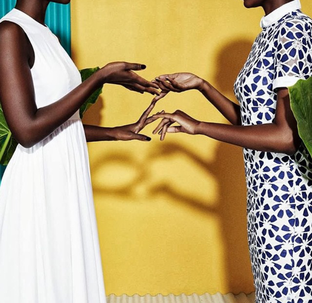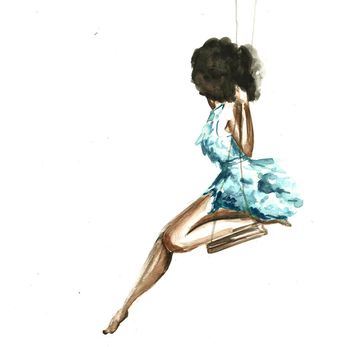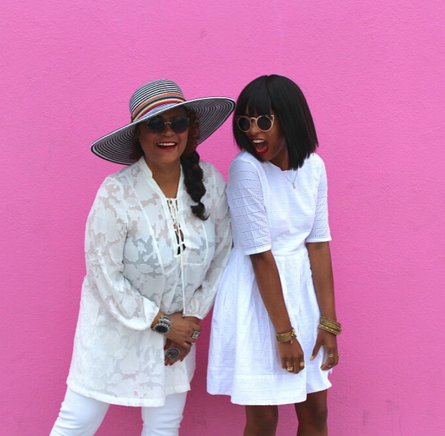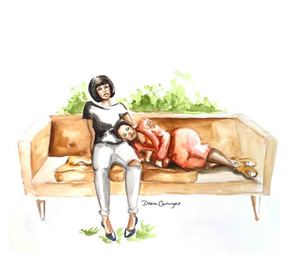Black girl be in a bubble, bubble
|
|
Robin Boylorn opens up with a reflection where she grapples with her public black feminist work as a black female scholar. In her assessment of what it means to be black, female, and a feminist, she travels back to her childhood and home on the origins of her feminism. She takes a look at the intersections of black feminism, black womanhood, and public discourse.
When reflecting at the traditional ideas about privacy within the black community (p. 74), Boylorn (2013) compares the objective of her private academic work to her public identity as a blackgirl blogger. It was as if she were talking directly to me. The author questions the meaning of feminism for herself and feminism as a way of being for her elders. She writes, “our uninterrogated investment in naming ourselves and creating opportunities from our circumstances was fiercely feminist, but we just called it “getting by” (p.73, para 2). Like Boylorn (2013), I laugh at the thought of speaking the word feminist to my black mother and sisters. The word does not mean much to them. Yet, the further I dive into black feminist literature, I only envision my mother and sisters as the embodiment of black feminism.
"The Personal is Political" - Shulamith Firestone and Anne Koedt Similar to Boylorn (2013), privacy was kept between you and yours and not meant to be shared with or in public. The author writes, “sharing our stories and experiences had always been restricted to the household and between kinfolk” (p. 74, para 2). In this way, black girls were discouraged from speaking out, sharing stories, and exchanging experiences despite the wealth that could be gained from doing so. The irony of not using our voices and sharing our stories, counters the work rooted in black feminism, hence the author’s internal conflict. Boylorn’s (2013) academic work is centered around an auto/ethnographic framework which is ingrained in her personal life and research. Her work as a blackgirl blogger on Crunk Feminist Collective is in isolation from her academic persona.
|

Both Johnson (2015) and Boylorn (2013) complicate the boundaries between public and private matters, addressing Black women’s reluctance to be vulnerable. Johnson writes, “it is impossible to apply binaries of private/public to black diasporic women” (2015, p. 50, para 5). In the 21st century, Black women’s wellness is carried across international lines as black sister healing is reached beyond our immediate circles. As Black women move outside the comfort of salons and kitchen tables, the boundaries between public and private are becoming more blurred. In an Instagram comment by Kimberly Foster, the founder of For Harriet, “a blog community for women of African ancestry”. Foster posts, “I’m really trying to make sure private Kim is congruent with public Kimberly Foster”. The demand of social media calls for black feminist, social commenters, and scholars to intertwine their personal and private lives
Especially if you’re running an online business, or lifestyle brand. It’s imperative that what your selling in your business aligns with views and beliefs in your personal life. Within black feminist activism, it is no longer appropriate to be private with your private affairs. In the digital age, there is no such thing as private. Boylorn (2013) expresses her angst and excitement of blogging for a larger audience who gives immediate feedback. The benefits for blackgirls to be vulnerable online and with one another outweighs the risks and consequences. In the grand scheme of things, it is a necessity for blackgirls to broaden their reach and not just share antidotes with those in their close circles. But it’s essential for us to learn from one another and share ourselves as a tool of resistance, healing, through afrodigital feminism.
|
Boylorn, R., M. (2013). Blackgirl Blogs, Auto/ethnography, and Crunk Feminism. Liminalities: A Journal of Performance Studies, 9(2), 73-82.
Johnson, J., M. Nunez, K. (2015). Alter Egos and Infinite Literacies, Part III: How to Build a Real Gyrl in 3 Easy Steps. The Black Scholar, 45(4), 47-61.
This page was created by Rebekah Christie.
Johnson, J., M. Nunez, K. (2015). Alter Egos and Infinite Literacies, Part III: How to Build a Real Gyrl in 3 Easy Steps. The Black Scholar, 45(4), 47-61.
This page was created by Rebekah Christie.



